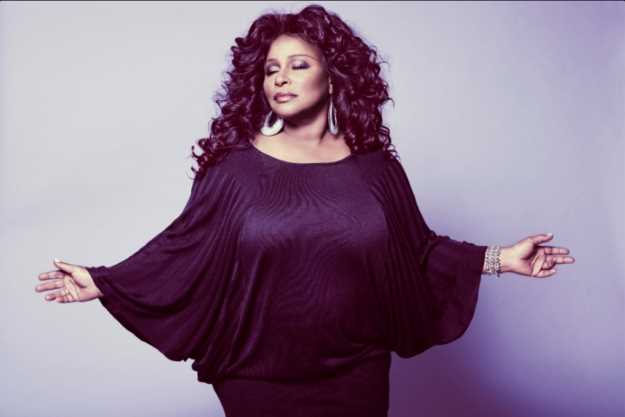| |
Taken from The Michigan Daily (Feb 17, 2019)
Chaka Khan's 'Hello Happiness' misses the mark
by Emily Yang, Daily Arts Writer

Island Records |
It's hard to see Chaka Khan release an album in 2019 without appreciating the panoramic sweep of her career - she's best known for her defining role in funk and R&B of the '70s and '80s, which means she lived and worked through at least one drastic transition in American musical history. She made her defining career moves before the internet changed everything, sure, but she also lived in a time before drum machines were the norm, before hip hop coalesced as a genre. She has collaborated with Ray Charles and Mary J. Blige, separated by two decades. There's a street in Chicago named after her.
She isn't a relic, though, despite her last few albums seeming to signal a career coming to a gliding stop. 2004's ClassiKhan was a collection of velvet-curtained standards that could have been a fitting culminating statement - the album feels like a victory lap of sorts, a record highlighting the voice of an artist who has proven that she can use it in a wide variety of contexts. 2007's Funk This did something similar with '70s funk - both albums worked more as nostalgic tributes by an acknowledged master than any new, definitive statement.
The production credits on the recently-released Hello Happiness signal that this has changed. The standout is the British house DJ Switch, who has production credit on every song. He is perhaps best represented in his work with M.I.A., for whom he backs with a twitchy digital pyrotechnics. Given his EDM roots, it's a strange choice for him to be producing Khan's record. The combination has the vague potential to be interesting, but the result is an album in which it feels like every component is at odds with every other component, a confused muddle that never really gets off the ground. It seems as though Switch tried a sort of updated 1970s, tossing in a smorgasbord of vaguely funky sounds - the Hammond organ on "Too Hot," the reedy guitar on "Ladylike," the wah pedal on "Isn't That Enough." Sampling is, at this point, a canonical practice in dance music, but this is sampling at its most facile, its most Potemkin. Maybe it's because we have Khan's older music to compare Switch to, but it seems like the music doesn't get anywhere close to the open-ended, vocal riffs and delicate interplay of funk music or the propulsiveness of disco. Phrases that could have been convincing are crammed into four-and-two-bar loops, a production choice that sticks out next to Khan's musicianship - her voice hasn't lost any of its power, and she readily bends pitch and crosses barlines as the rest of the backing track proceeds in computerized lockstep.
Overall, the production feels like someone who likes listening to himself talk too much, like someone fascinated by his own cleverness even as he talks over the more interesting conversational partner. There are moments where I wanted the twitchy percussion and the irritating synths to melt away and simply let Khan's voice through - the title track, in particular, has the most potential to rival Khan's work from the 1970s and 1980s, but it's just so overburdened. There are also more than a few embarrassing debacles. It's advisable for anyone reading this to just skip "Don't Cha Know" unless they want an unpleasant reminder that dubstep ever happened, shortly followed by the horrifying thought that somewhere, probably in Britain, it might still be happening.
As I was listening to Hello Happiness, I couldn't help but think of the now-infamous interview that one of Khan's past collaborators, Quincy Jones, gave in 2018. Over and over, he emphasized that the popular music landscape of the US is missing real, thorough appreciation for the past; musicians are forgetting that all possibility for progression comes from taking seriously what has come before. "Producers now are ignoring all the musical principles of the previous generations . . . You're supposed to use everything from the past. If you know where you come from, it's easier to get where you're going." Given that Khan's discography is one possible way to survey almost a half-century of musical history, it's frustrating that this album feels trapped in the particularities of the present moment - a lazy, appropriative production style and lack of real substance dressed up with flashy instrumentals. It feels like Khan doesn't deserve this, this late in her career - I hope that there is another album after this one, and that it is better.
|
|